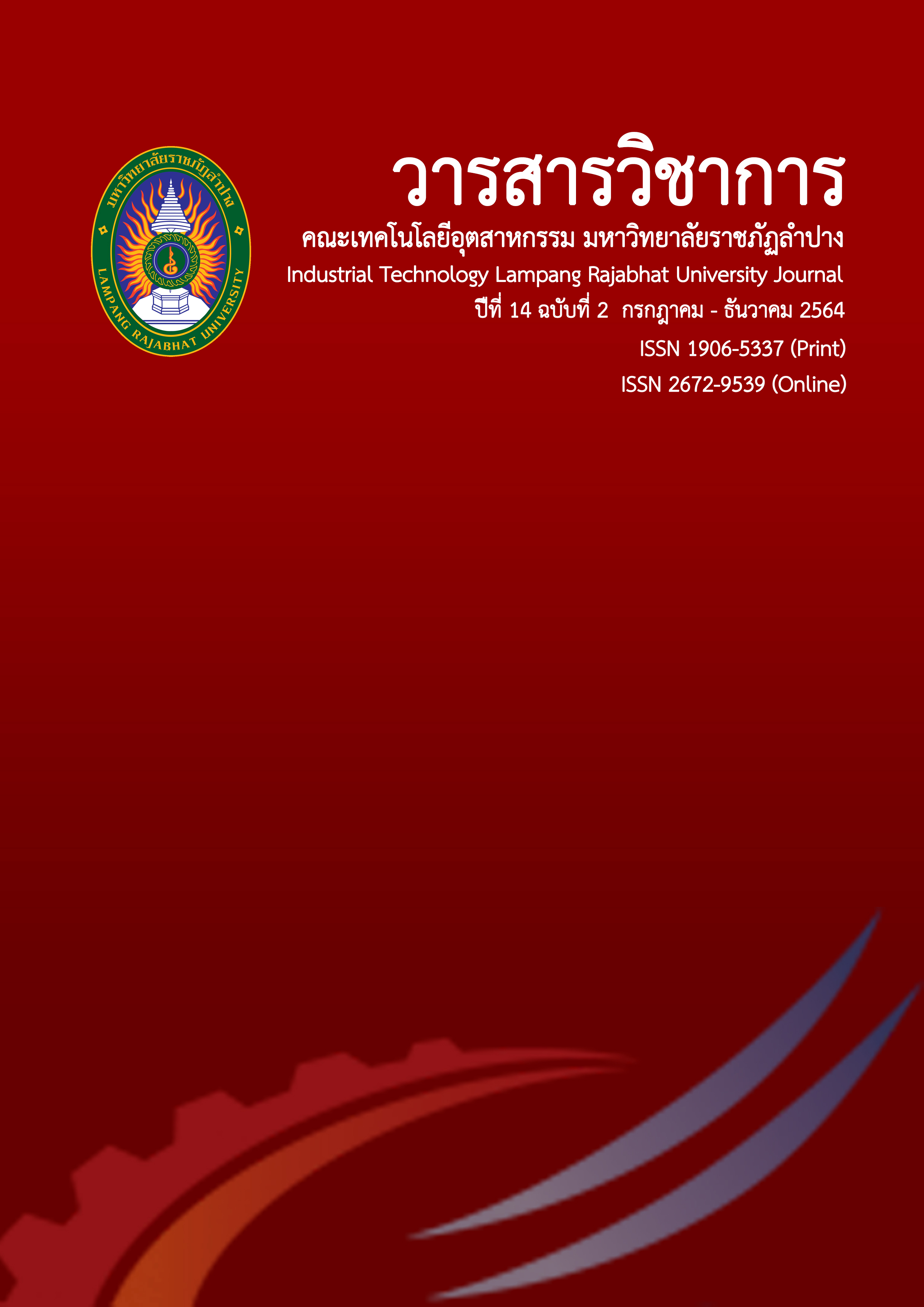Energy Efficiency Assessment and Net Zero Energy Building Improvement Guidelines: In Case study of Lifelong Learning Institute Building, Chiang Rai Rajabhat University
Keywords:
Energy Efficiency Assessment, Net Zero Energy BuildingAbstract
The objective of this research is energy efficiency assessment of Lifelong Learning Institute Building, Chiang Rai Rajabhat University. Building structure data, lighting system, air conditioning system, and electrical equipment are investigated and are analyzed by Building Energy Code (BEC). Then, these data are analyzed building improvement method for zero energy building. The evaluation result of building envelope system found that, the overall thermal transfer value (OTTV) is not meet standard, but Roof thermal transfer value (RTTV) is meet to standard. The parts of light system, air conditioning system and total energy consumption is meet the standard as the requirement of building energy code.
This research also study for energy efficiency building solution which are 2 conditions. The condition 1 is efficiency increasing of building envelop by wall insulation adding and glass replacement to energy saving glass. It found that, the result of OTTV evaluation is meet the standard. The condition 2 is renewable energy technology selection by 20 kWp solar roof top installation for electricity generation which has 100 unit per day of maximum power generation. It found that, this technology can produce enough electricity for Lifelong Learning Institute Building, Chiang Rai Rajabhat University. It can make to net zero of building which can be a model of net zero energy building of Chiang Rai Rajabhat University and green university preparing.
References
Chiang Rai Rajabhat University. (2017). A complete report on the promotion of renewable energy in government agencies–Chiang Rai Rajabhat University. (in Thai)
Coordinating center for energy conservation building design. (2019). Building Energy Code (BEC). [online]. Available: http://new.2e-building.com/. Access on January 10, 2019. (in Thai)
Poophet, M. and Khunthong, J. (2016). The study of Building Development for Energy Efficiency: Case Study of Educational Buildings. Building Innovation 2016: B-inno2016. pp. 358-366. (in Thai)
Pholnak, C., et al. (2017). Efficiency Evaluation of 3 kW Photovoltaic Rooftop and Grid Connected System by Using PVsyst Programmed ModelingSimulation. Thaksin University Journal. Special Edition. Vol.20 (27) 2017. (in Thai).
Srisukpornchai, N., et al. (2020). Study of Grid-Connected Rooftop Solar Photovoltaic System and ItsInstallation Potential for Universities in Thailand. The Golden Teak: Science and Technology Journal, 7(1), 1-13. (in Thai)
Tanrattanawong, S. and Chindavanig, T. (2019). Improving Energy Efficiency in Building to Net Zero Energy Building: A Case Study Standard Government Office Building. Senate. 4/2562. 523-535. (in Thai)
Wongsiya, A. (2016). GUIDELINES FOR DEVELOPMENT OF NET ZERO ENERGY BUILDINGS FOR GOVERNMENTAL OFFICE BUILDINGS IN THAILAND. the Requirements for the Degree Master of Architecture Program in Architecture, Silpakorn University. (in Thai)
Downloads
Published
Issue
Section
License
Copyright (c) 2021 Industry Technology Lampang Rajabhat University

This work is licensed under a Creative Commons Attribution-NonCommercial-NoDerivatives 4.0 International License.






